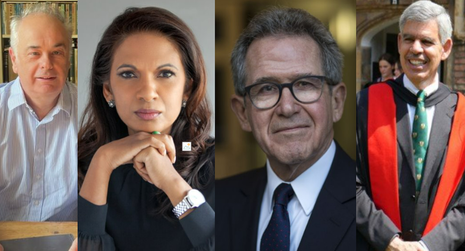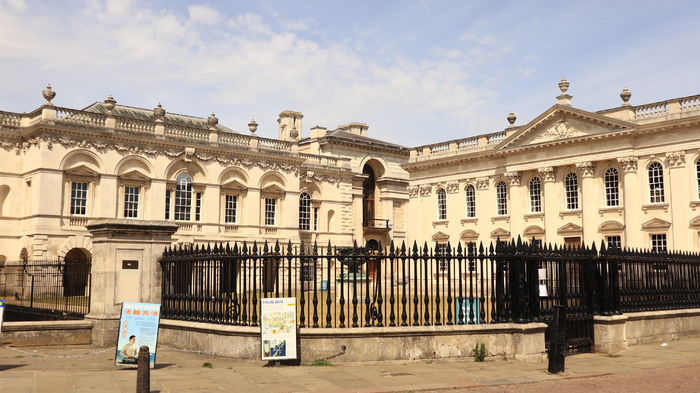Oxford wins the ceremonial Varsity
Charlie Rowan argues that Cambridge is losing its grip on national attention

Cambridge has plenty to be proud of. Our labs change the course of science, our academics win an unnerving number of Nobel Prizes, and our alumni remain at the forefront of technological and societal change. For all the stuffy Spectator cries about the supposed “infantilisation” of our teaching, this university still matters enormously to Britain and the world.
Yet, for all this ostensible achievement, last month’s Chancellorship election showed how far our real-world influence has drifted from our place in the national conversation. Lord Smith’s victory appeared a dignified, if unexpected, conclusion to a quiet race against comedian Sandi Toksvig, activist Gina Miller, economist Mohamed El-Erian, among others. For all their respective accomplishments, the contest barely registered beyond the city. When the result came in, The Times tucked it away as a quarter-page on page 20. The Guardian didn’t even bother running anything on it. During the campaign itself, much of the national coverage came from the handful of Varsity reporters who had even noticed an election was taking place.
“Last month’s Chancellorship election showed how far our real-world influence has drifted from our place in the national conversation”
Compare that to Oxford’s contest last November. Their Chancellor’s post is as ceremonial (and, let’s face it, as pointless) as ours, but their final run-off – between Lord Hague and Lord Mandelson – became a minor political drama. It was written up in national columns, dissected in the parliamentary lobby, and treated as though the result might have a real-world impact. Naturally, everything has gone quiet since Hague won out. But the race itself was turned into a spectacle: The Times gave the declaration a more dignified half-page on page 14; The Guardian ran four separate articles in the build-up; even The New York Times weighed in. Mandelson, the losing candidate, consoled himself with the slightly less important role of serving as Britain’s ambassador to Washington, as Trump’s election victory settled in.
“Cambridge, by contrast, seems content to treat its rituals as an administrative procedure, ready to be quietly filed away”
This isn’t to belittle Cambridge’s candidates, who were, on the whole, relatively distinguished figures. But the contrast says something about how the two universities occupy the public imagination.
Of course, the traditional media are not the complete expression of soft power. They do, however, reflect that Oxford still has an instinct for ceremonial politics, even when the stakes are negligible. Cambridge, by contrast, seems content to treat its rituals as an administrative procedure, ready to be quietly filed away.
Perhaps that reflects where our real power now lies: in research, innovation, and the slow burn of policymaking, rather than the theatre of PPE graduates-turned-politicians. That’s nothing to be ashamed of, and, in many ways, it’s refreshing to be a little less pompous and self-aggrandising.
But soft power matters too. The ability to make the country pay attention, even to something irrelevant, keeps Cambridge vivid in the national imagination and attractive to the best talent. Without it, what’s to stop Britain’s other universities from usurping our place at the top of the tables?
Last November, Oxford stayed in the spotlight with their pantomime. Last month, our own contest passed almost unnoticed. And you can’t help but feel that, in the process, we’ve lost something.
 News / Colleges charge different rents for the same Castle Street accommodation2 March 2026
News / Colleges charge different rents for the same Castle Street accommodation2 March 2026 News / News in Brief: waterworks, wine woes, and workplace wins 1 March 2026
News / News in Brief: waterworks, wine woes, and workplace wins 1 March 2026 News / Climate activists protest for ‘ethical careers policy’1 March 2026
News / Climate activists protest for ‘ethical careers policy’1 March 2026 News / Angela Merkel among Cambridge honorary degree nominees27 February 2026
News / Angela Merkel among Cambridge honorary degree nominees27 February 2026 News / Private school teacher who lied about Cambridge degree barred from teaching27 February 2026
News / Private school teacher who lied about Cambridge degree barred from teaching27 February 2026









